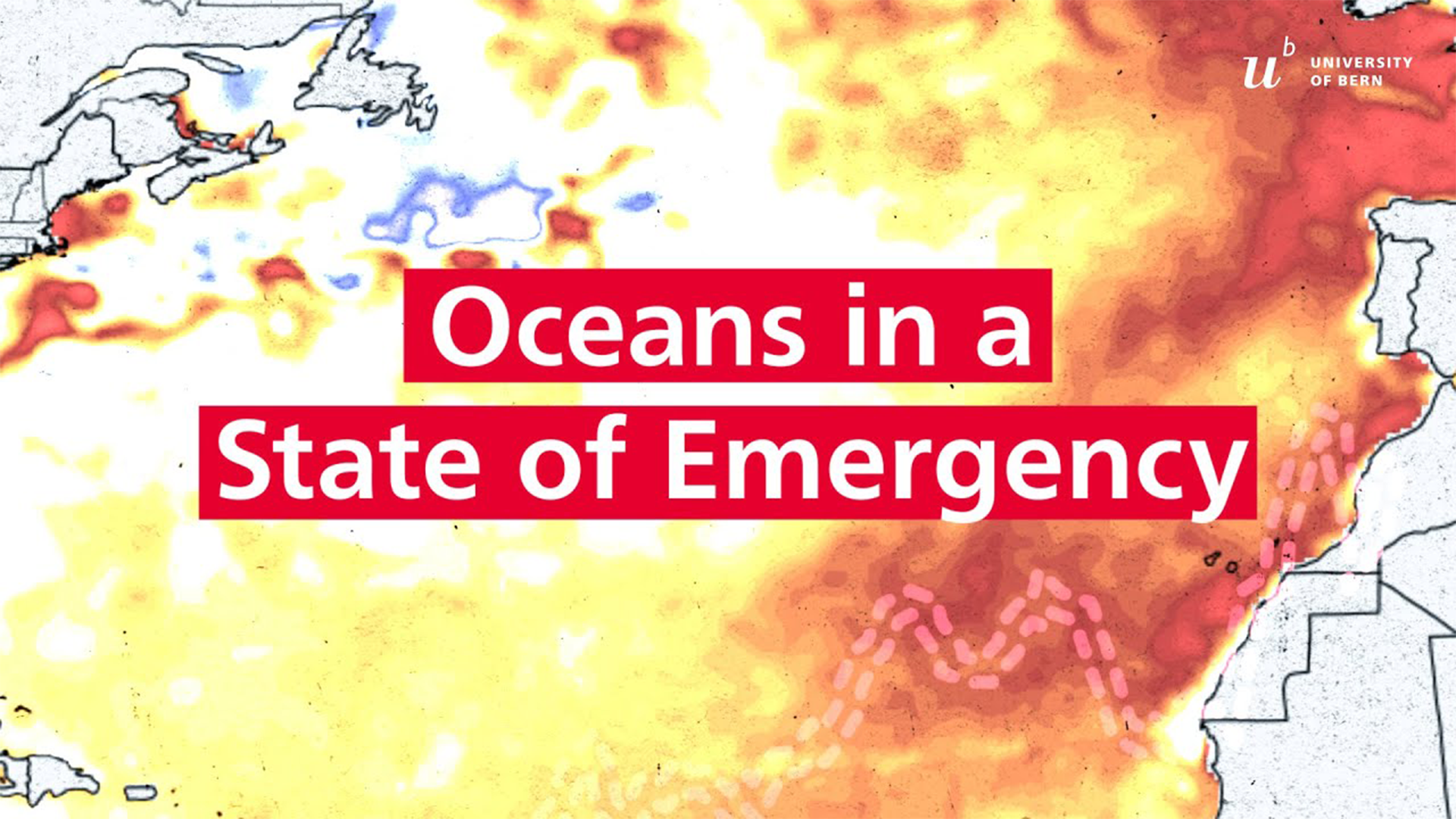Video
Unprecedented ocean heat
The world's oceans are currently in a state of emergency. What are the reasons for this and what impact does it have on Switzerland? Ocean researcher Thomas Frölicher from the University of Bern explains.
"Marine heat waves are often very damaging to marine ecosystems," explains Thomas Frölicher. They can lead to increased mortality of birds, fish and marine mammals, as well as the development of harmful algal blooms. "In addition, marine heat waves cause coral bleaching, lead to shifts of fish communities to cooler waters and often contribute to the sharp decline of sea ice and the intensification of tropical cyclones," he says.
Global warming is increasing the frequency of heat waves like the current one in the northeast Atlantic. But it cannot fully explain them, says Frölicher. A number of natural factors are suspected of contributing. These include, for example, weaker winds that slow down the subtropical vortex in the Atlantic, or the absence of the cooling effect of Saharan dust.
About the Person

Thomas Frölicher studied environmental sciences at ETH Zurich and received his doctorate in physics from the University of Bern. He then worked as a postdoc at Princeton University in the USA and at ETH Zurich for several years. He has been SNF Associate Professor in the Climate and Environmental Physics division at the University of Bern since 2017. In 2019 Frölicher was awarded the Theodor Kocher Prize of the University of Bern. He is a member of the Oeschger Centre for Climate Research and has contributed significantly as the lead author of the IPCC Special Report on the Ocean and Cryosphere in a Changing Climate.
